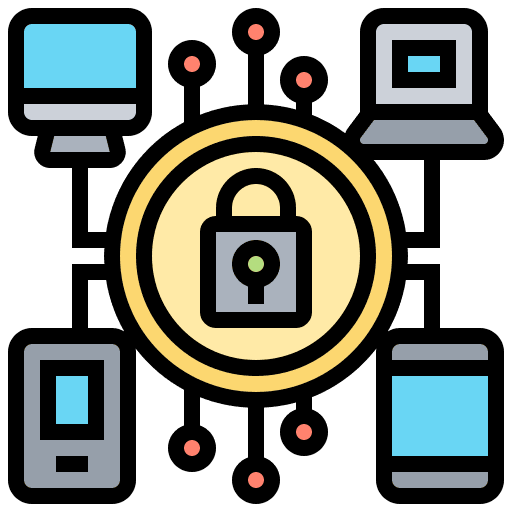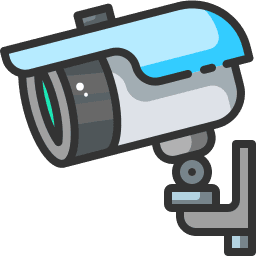Why Browser Security Matters
Browser security isn't just for tech experts or paranoid security professionals—everyone faces real threats from increasingly sophisticated attacks that exploit browser vulnerabilities, user behavior, and configuration weaknesses. Proper, comprehensive browser security protects your sensitive personal data from exposure, prevents devastating identity theft and financial fraud, secures online banking and shopping transactions, protects your professional reputation and career, and maintains privacy from corporate surveillance and government monitoring. The average person is targeted by hundreds of tracking systems and multiple attack attempts daily—browser security is digital self-defense.
Most Dangerous Browser Security Threats in 2026
Understanding these threats is the first step to protecting yourself. Each poses unique risks requiring specific defenses:
Phishing Attacks (Most Common Threat)
Fake websites that mimic legitimate ones to steal your credentials—banking sites, email logins, social media. Phishing has become incredibly sophisticated, using identical URLs (with tiny differences), stolen branding, and urgent language ('Your account will be closed!'). Over 70% of data breaches start with phishing. Always verify URLs before entering sensitive information.
Malware and Drive-by Downloads
Malicious software that installs automatically when you visit infected websites or download disguised files. Modern malware can steal passwords, record keystrokes, encrypt your files for ransom, or use your computer for crypto mining. Browsers' built-in protection helps, but staying vigilant and avoiding suspicious downloads is crucial.
Tracking, Profiling, and Surveillance
Advertising networks, data brokers, and government agencies track your every move online—building detailed profiles of your interests, habits, health concerns, financial status, and relationships. This tracking occurs through cookies, fingerprinting, and social media pixels. Seemingly harmless but enables manipulation, discrimination, and privacy violations.
Session Hijacking and Cookie Theft
Attackers steal your active login sessions through XSS attacks or network interception, gaining access to your accounts without needing passwords. Particularly dangerous on public WiFi where attackers can intercept unencrypted connections. HTTPS and regular cookie clearing help prevent session hijacking.
Man-in-the-Middle (MITM) Attacks
Attackers position themselves between you and the website you're visiting, intercepting all data transmitted—passwords, credit cards, messages. Common on public WiFi where fake hotspots impersonate legitimate networks. HTTPS encryption prevents MITM attacks, but some attackers use certificate spoofing. VPNs provide additional protection.
Malicious Browser Extensions
Extensions that appear useful but actually steal data, inject ads, redirect searches, or monitor your browsing. Some legitimate extensions get sold to malicious developers who update them with spyware. Extensions have broad permissions—access to all websites, reading form data, modifying pages. Vet extensions carefully before installing.
Real-World Browser Security Breaches: Learn from Others' Mistakes
Phishing attacks successfully trick approximately 30% of recipients—these aren't just gullible or careless people, but sophisticated attacks that fool even security-aware users with perfect replicas of legitimate sites. Most devastating: many of these breaches stem from ignoring simple, basic security practices—not updating browsers to patch known vulnerabilities, clicking suspicious links in emails without verification, using weak or reused passwords across multiple sites, or ignoring browser security warnings because they're annoying. Learning from others' expensive mistakes costs nothing and prevents becoming the next victim.

Essential Security Settings Checklist
Configure these settings in your browser for maximum security:
- 1✓ Enable automatic security updates
- 2✓ Turn on phishing and malware protection
- 3✓ Enable secure browsing warnings
- 4✓ Disable JavaScript for untrusted sites
- 5✓ Block pop-ups and redirects
- 6✓ Enable HTTPS-only mode
- 7✓ Disable location sharing
- 8✓ Turn off camera and microphone access by default
Privacy Settings Configuration
Protect your privacy with these essential settings:
- 1Block third-party cookies
- 2Disable tracking and fingerprinting
- 3Clear browsing data regularly
- 4Use private/incognito mode for sensitive browsing
- 5Disable password saving for sensitive sites
- 6Turn off autofill for personal information
- 7Block ads and trackers
- 8Use a VPN for additional privacy
HTTPS vs HTTP: Understanding Secure Connections
Modern browsers display prominent security warnings about insecure HTTP sites—never click through these warnings for sites where you'll log in or make purchases, as they exist to protect you from credential theft. Enable HTTPS-only mode in Firefox (Settings > Privacy & Security) or Chrome (Settings > Privacy and security) to force encrypted connections and refuse to load HTTP sites entirely. Over 95% of legitimate websites now use HTTPS—if a major site (bank, email provider, shopping site) uses HTTP in 2026, that's extremely suspicious and likely a phishing site designed to steal your credentials.
Password Security Best Practices
Strong password management is crucial for browser security. Use unique, complex passwords for each account and consider using a password manager for better security.

Extension Security: Protecting Against Malicious Add-ons
Only install extensions from official browser stores (Chrome Web Store, Firefox Add-ons, Safari Extensions), and carefully review the permissions each extension requests before installing—avoid extensions requesting 'Read and change all your data on all websites' unless absolutely necessary and from highly trusted sources. Regularly audit your installed extensions (at least quarterly) and ruthlessly remove any you don't actively use—unused extensions still run in background with full permissions. Check user reviews and installation counts—avoid brand new extensions with few reviews or downloads. Keep all extensions updated to patch security vulnerabilities, and temporarily disable extensions when performing sensitive activities like online banking if they're not essential.
Safe Browsing Habits: Behavioral Security Practices
Don't download files from untrusted sources or torrent sites without scanning them first—many contain malware disguised as legitimate software. Avoid performing banking, shopping, or accessing sensitive accounts on public WiFi networks in airports, hotels, coffee shops, or libraries where attackers easily intercept unencrypted traffic. Always explicitly log out when finished using accounts, especially on shared, public, or work computers where the next user could access your active sessions. Slow down when performing sensitive operations—attackers depend on users rushing and not noticing subtle warning signs that distinguish legitimate sites from sophisticated phishing attacks.
The Human Factor: Why Most Browser Security Fails
Security fatigue—the exhaustion from constant security decisions and warnings—causes users to automatically click 'Yes' or 'Allow' without reading what they're approving. Password reuse, practiced by over 65% of internet users, means a single breach of an unimportant site compromises banking, email, and work accounts using the same credentials. The solution isn't trying harder to be perfect (humans can't maintain constant vigilance)—instead, develop automated security habits that don't require conscious decisions, deliberately slow down when dealing with sensitive data or unexpected requests, and most importantly, use automated security tools that eliminate opportunities for human error entirely.
Browser Security Strategies for Different User Types
Not everyone faces the same threats or needs the same security level. Choose the strategy matching your risk profile:
Casual Users (Email, Social Media, Shopping)
Basic security is sufficient for low-risk activities. Enable browser's built-in phishing protection and automatic updates. Use unique passwords or a password manager. Clear cookies monthly. Enable two-factor authentication on important accounts. Avoid downloading suspicious files. This level balances convenience with essential protection for everyday browsing.
Business Users (Remote Work, Client Data)
Higher security for handling confidential information. Use separate browsers for work and personal. Enable all security features including HTTPS-only mode. Use VPN when accessing work systems. Clear browsing data daily. Use company-approved password manager with 2FA. Audit extensions quarterly. Follow employer's security policies. Business users face compliance and legal liability.
High-Risk Users (Banking, Healthcare, Legal)
Maximum security for sensitive data. Use Firefox with strict privacy settings or Brave browser. Install comprehensive security extensions (uBlock Origin, Privacy Badger, NoScript). Never save financial passwords in browser. Use VPN constantly. Clear all data on browser close. Avoid public computers and public WiFi entirely. Enable all security warnings. Regular security audits.
Extreme Threat Models (Journalists, Activists)
Nation-state level protection for those facing persecution or surveillance. Use Tor Browser for all sensitive activities. Use Tails OS for anonymity. Never reuse pseudonyms or link identities. Assume all non-Tor browsing is compromised. Use end-to-end encrypted messaging. Compartmentalize activities across different browsers and networks. Regular security training and threat modeling.
Automated Security with Browser Cleanup
Maintaining browser security requires constant vigilance that's exhausting for humans. Automated solutions eliminate human error and ensure consistent security practices. Our Broom Cookie Cleaner extension provides comprehensive automated security maintenance.

Network Security: Protecting Your Connection
Regular Security Maintenance Schedule
Emergency Security Response: What to Do If You're Compromised
If you suspect a security breach, immediate action is critical. Follow these steps in order to minimize damage:
Immediate Actions (First 5 Minutes)
Disconnect from the internet immediately—pull the WiFi cable or disable wireless to prevent further data transmission. If on mobile, enable airplane mode. Do NOT shut down your computer yet if you want forensic evidence. Take photos of any suspicious messages, pop-ups, or screen activity. Note the time and what you were doing when you noticed the breach.
Password Reset from Secure Device (Next Hour)
Use a different, known-secure device (not the compromised one) to change all critical passwords—email, banking, social media, work accounts. Start with email since it's the master key for password resets. Enable two-factor authentication immediately if not already active. Use strong, unique passwords. Assume your old passwords are compromised—don't reuse variations.
System Cleanup and Scanning (Next 2-4 Hours)
Run full antivirus and anti-malware scans on the compromised device—use multiple tools if possible (Malwarebytes, Windows Defender, etc.). Clear all browser data, cookies, cache, and history completely. Remove suspicious browser extensions. Check installed programs for anything unfamiliar. Consider factory resetting if malware persists—backup important files first but scan them before restoring.
Account and Financial Protection (Next 24-48 Hours)
Check all accounts for unauthorized activity—email sent items, bank transactions, credit card charges, social media posts. Contact your bank immediately if financial data was exposed—they can freeze cards and monitor for fraud. Consider credit freeze with all three bureaus if identity theft is suspected. File police report if significant financial loss occurred. Monitor accounts closely for next 90 days.
Frequently Asked Questions
Common questions about browser cookies answered
How often should I update my browser?
Enable automatic updates for the best security. If you update manually, check for updates at least weekly, as security patches are released regularly.
Is it safe to save passwords in my browser?
It's generally safe for non-sensitive accounts, but avoid saving passwords for banking, financial, or work accounts. Use a dedicated password manager for better security.
Should I use a VPN with my browser?
A VPN adds an extra layer of security, especially on public WiFi. It encrypts your connection and hides your IP address, making your browsing more private.
What's the difference between HTTP and HTTPS?
HTTPS encrypts data between your browser and the website, making it much more secure. Always look for the lock icon and 'https://' in the address bar.
Can browser extensions be dangerous?
Yes, malicious extensions can steal data, inject ads, or track your browsing. Only install extensions from official stores and review their permissions carefully.
How do I know if my browser has been compromised?
Signs include unexpected pop-ups, slow performance, changed homepage, new extensions you didn't install, or suspicious activity in your accounts.



